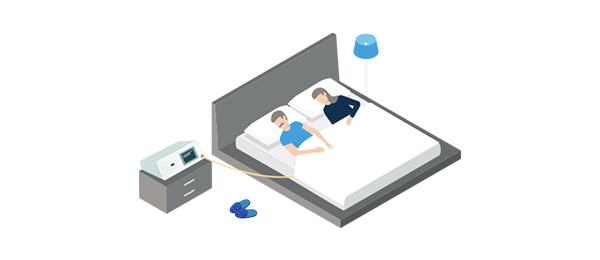In-Centre Haemodialysis (In-Centre HD)
In-centre haemodialysis (In-Centre HD) is a therapy option that filters your blood outside your body using a haemodialysis machine and a manufactured filter, called a dialyser.
What Is In-Centre Haemodialysis (In-Centre HD)?
During haemodialysis (HD), the haemodialysis machine removes a small amount of your blood from your body through a needle or catheter. The dialyser then filters your blood, removing waste, toxins, and excess fluid before returning your filtered blood back into your body.
In-centre haemodialysis (HD) treatments take place at a hospital or dialysis clinic under the supervision of a clinical care team.
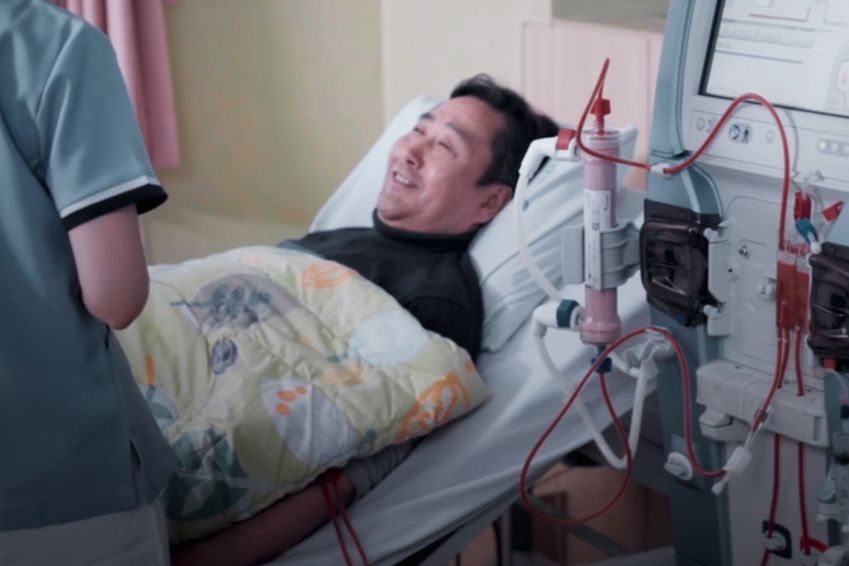
How Does In-Centre Haemodialysis (In-Centre HD) Work?
With in-centre haemodialysis (In-Centre HD), you will typically travel to your hospital or dialysis clinic 3 times a week to receive 3-5-hour treatments each time, depending on the dialysis schedule your clinician has prescribed. There, you will be taken care of by a nurse or clinician throughout your treatment.

Choosing a type of in-centre haemodialysis (In-Centre HD)
If you and your clinician decide that in-centre haemodialysis (In-Centre HD) is the best treatment option for you, you may be able to choose between receiving in-centre treatments during the day (daytime HD) or, in some cases, receiving them at night (nocturnal HD). Daytime haemodialysis (HD) is the most common choice of therapy and is the most likely to be available to you. Your sessions will be scheduled at a time that fits your hospital or clinic. Days and times for therapy will be allocated depending on available spaces.
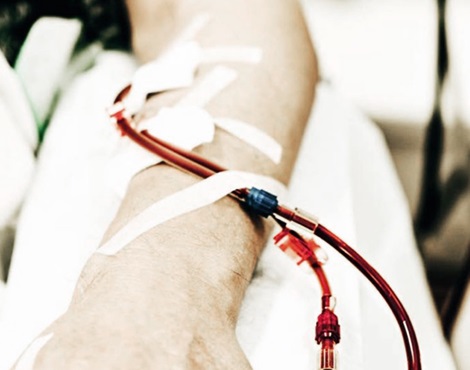
Preparing for in-centre haemodialysis (In-Centre HD)
Before your in-centre haemodialysis (In-Centre HD) treatments start, you will also need to have a surgical procedure that creates a dialysis access site under your skin called a fistula. This fistula lets unfiltered blood flow from your blood vessels through the haemodialysis machine and lets clean blood flow back into your blood vessels. Access to this fistula is created by inserting two needles into the blood vessels in the fistula.

How much does HD therapy cost?
Please consult your kidney care team to explore access to HD treatment including cost and subsidy. Your doctor or nurse may assess your financial need and suggest the next step to assist you in starting on HD.
The average cost for kidney dialysis is about RM250 per session.1 In Malaysia, the government subsidises HD treatment to locals who are unable to foot the cost of the dialysis treatment. Treatment can be done at government hospitals or NGO-run HD centres that are recognised by MOH. MOH will subsidize RM100 for each hemodialysis treatment per patient.2

Benefits of In-Centre Haemodialysis (In-Centre HD)
In-centre haemodialysis (In-Centre HD) is performed under the supervision of a supportive clinical team, meaning that you can let others take care of you during treatment. You can use your treatment time to sleep, read, work on your laptop, listen to music or do something else you enjoy. You will also have the opportunity to talk to other dialysis patients, so you can exchange information and stories about dialysis journeys similar to and different from your own.
Where to go next?
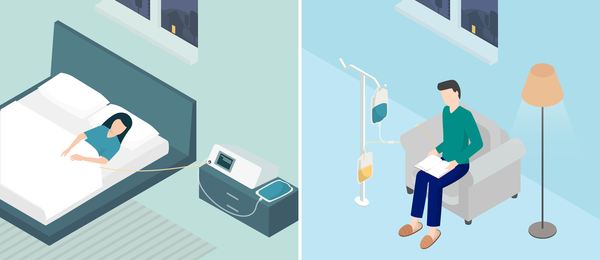
Peritoneal Dialysis (PD) at Home
Peritoneal dialysis (PD) is the other type of dialysis which can be done at home. We explain more on PD.
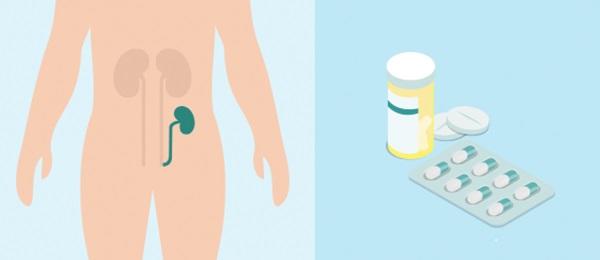
Kidney Transplant & Conservative Care
If you and your clinician decide dialysis isn’t right for you, there are other treatment options you may consider.

